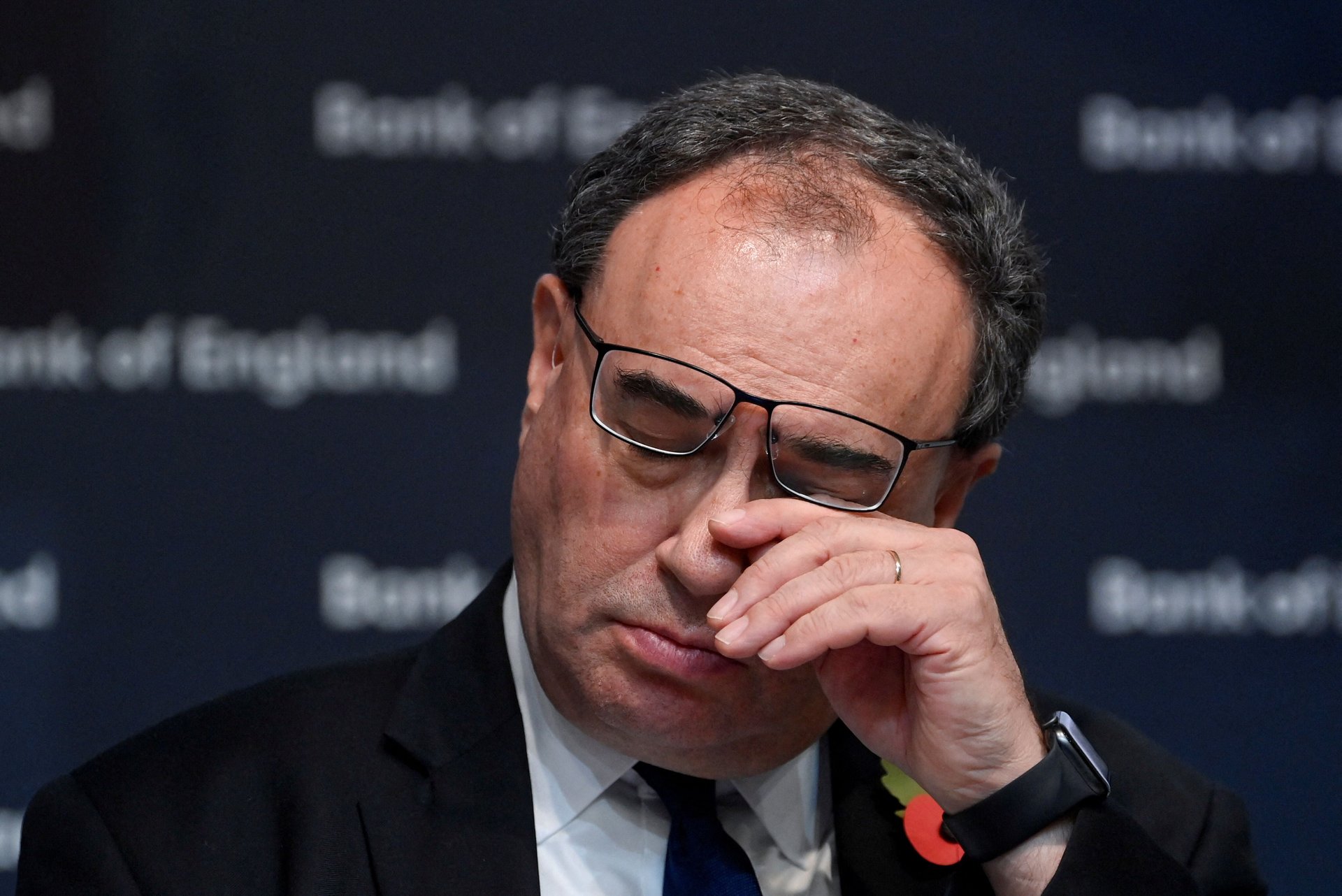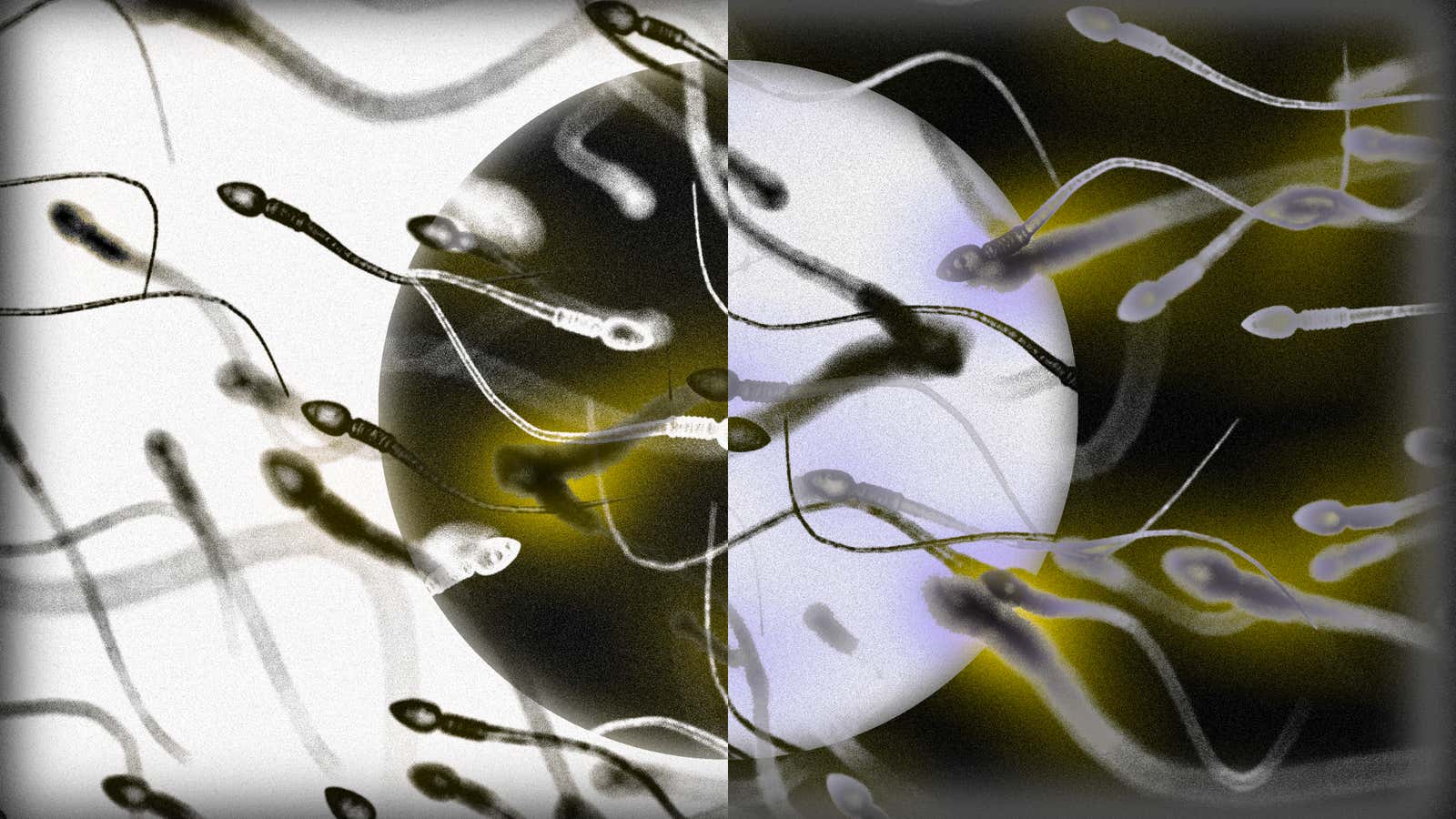🌍 A long, winding recession
Plus: Will daylight saving time be permanent in 2023?

Good morning, Quartz readers!
Here’s what you need to know
The Bank of England made its biggest rate hike since 1989. The move to tamp down inflation comes as the bank predicts a long-lasting recession. Hong Kong also raised rates and five big commercial banks, including HSBC, followed suit.
It was a rough couple days for tech jobs. Amazon is freezing corporate hiring, Stripe is cutting 14% of its workers, and half of Twitter’s staff—3,700 jobs—are reportedly on the firing line.
The G7 met in Germany. Foreign ministers from the Group of Seven kicked off a two-day meeting that’ll address Ukraine aid, China policy, and Iran’s protests.
A Chinese bank seized property from Evergrande’s chairman. A Hong Kong mansion, worth a reported $89 million, is one of several properties taken by creditors in recent months as the embattled developer faces over $300 billion in liabilities.
Profits for India’s Adani Enterprises soared. Adani Group’s flagship company, and rapidly expanding business incubator, saw earnings skyrocket 117% in the second quarter, while its revenue nearly tripled.
Israel’s former prime minister Benjamin Netanyahu is back. He will return as head of a far-right government after beating acting prime minister Yair Lapid in this week’s general election.
The world’s biggest climate summit kicks off Sunday (Nov. 6).
What to watch for
If some US lawmakers have it their way, Nov. 6 would mark the last time the clocks fall back and daylight saving time ends.
In March, the Senate unanimously voted to pass the Sunshine Protection Act, which would make daylight saving time (DST) permanent. The bill still needs to pass the House—it’s currently “held at desk” as there’s similar legislation under consideration—and then have the president sign it into law. If that happens, once the clocks spring forward in March 2023, they won’t change back: daylight saving time would become the new normal.
Proponents argue that more daylight hours lead to more activity, whether commercial or physical. But not all businesses see perks. Perhaps all sides could agree that changing the clocks twice a year is a hassle for one’s body and mind, and quite annoying for the 70 countries around the world that still practice daylight saving.
Sperm bank regulation is a sticky subject

While sperm banks in the US have been around since the 1950s, growing societal acceptance of same-sex parents and single parents by choice has turned donor gametes into a $5 billion global industry.
Sperm donation in the US has had much less oversight compared to the UK, Australia, and many European countries. Some US states like Colorado are trying to change this, and momentum is building at the federal level to tighten the process. But the norms around using donor eggs and sperm already seem to be changing faster than the laws that govern them.
As former Quartz reporter Sarah Todd writes, regulating reproduction is a sticky ethical topic. It brings up important questions around what donor-conceived people are owed—not just by the parents who raise them, but by the entire ecosystem of individuals who bring them into existence.
Is ambition a scam?
In the 2010s, we were hustling, rising and grinding, and #girlbossing. Today, we’re trying to avoid burnout. What’s changed?
Our fifth and final episode of Work Reconsidered, a podcast about the changing workplace, explores the topic of ambition. Subscribe wherever you get your podcasts!
🎧 Listen to this week’s episode on: Apple Podcasts | Spotify | Google | Stitcher
✦ Can’t get enough Quartz? Grab a membership, now 50% off, to get exclusive content sent directly to your inbox. Peruse our Weekend Brief archive—you won’t want to miss the next edition.
Surprising discoveries
Crows can do a thing we thought only humans could do. Two corvids learned a cognitive ability called recursion in a matter of days.
Scientists made a 30-year cancer treatment breakthrough. They found a way to target previously “undruggable” proteins.
More deer would be alive if daylight saving time were permanent. A new study covering 23 US states shows deer-vehicle collisions increase when clocks go back.
Bicycle hearses may be coming to Paris. Undertaker Isabelle Plumereau thinks they bring an element of “soft mobility” to funeral proceedings.
Google put the nail in the coffin of Google Hangouts. As far as we know it was not rolled away in a bicycle hearse.
Our best wishes for a productive day. Send any news, comments, genius crows, and a Corncob TV subscription to [email protected]. Reader support makes Quartz available to all—become a member. Today’s Daily Brief was brought to you by Sofia Lotto Persio, Julia Malleck, and Morgan Haefner.